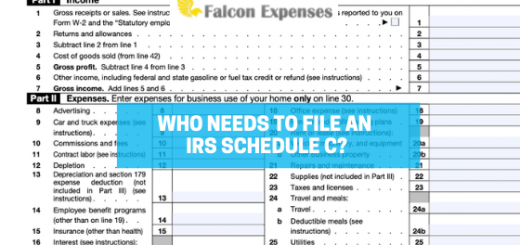The Complete Guide to Starting a Georgia LLC
Table of Contents
Are you a sole proprietor or small business owner evaluating which state is best to form your LLC? Read this article for a complete guide to forming a Georgia LLC.

Limited Liability Companies (LLCs) are popular among small business owners and sole proprietors because they offer personal liability protection and tax benefits. If you’re considering forming an LLC in Georgia, this guide will provide you with all of the information you need to get started.
What is an LLC?
An LLC is a type of business structure that provides personal liability protection for its owners while offering the tax benefits of a partnership. In an LLC, the owners are called members, and they are not personally liable for the debts and liabilities of the company. Instead, the company’s debts are the responsibility of the LLC itself.
What is a Georgia single-member LLC?
A Georgia single-member LLC is an LLC that has only one owner. In Georgia, single-member LLCs are taxed as sole proprietorships for federal income tax purposes. This means that the LLC’s income and expenses are reported on the owner’s personal tax return.
What is a Georgia multi-member LLC?
A Georgia multi-member LLC is an LLC that has two or more owners. In Georgia, multi-member LLCs are taxed as partnerships for federal income tax purposes. This means that the LLC’s income and expenses are reported on a separate tax return for the LLC.
Why is Georgia a good state to form an LLC?
Georgia is a great state to form an LLC for several reasons. For one, Georgia has a thriving business environment, with a highly educated workforce and a low cost of living. Additionally, Georgia offers tax incentives for businesses, such as tax credits for hiring new employees and tax exemptions for certain types of equipment. Furthermore, Georgia has a streamlined and efficient legal system that can benefit businesses in the long run.
Georgia LLC Benefits
If you’re considering starting a Georgia limited liability company (LLC), there are many benefits to doing so. Here are some of the top benefits of forming an LLC:
Personal liability protection for members
One of the biggest benefits of forming an LLC is that it provides personal liability protection for its members. This means that the personal assets of LLC members, such as their homes and cars, are generally protected from the business debts and liabilities of the LLC. In other words, if the LLC were to face a lawsuit or go bankrupt, the personal assets of its members would be shielded from the business’s financial obligations.
Pass-through taxation
Another significant benefit of forming an LLC is that it offers pass-through taxation. This means that the LLC’s profits and losses are passed through to its members, who report them on their personal tax returns. This can be beneficial because it allows the LLC to avoid double taxation, which occurs when a corporation is taxed at both the corporate and individual levels.
Flexibility in management structure
LLCs offer flexibility in terms of management structure. Unlike corporations, which must have a board of directors and officers, LLCs can be managed by their members or by managers who are not members. This allows LLCs to tailor their management structure to their specific needs and preferences.
No residency requirements for members or managers
Unlike some states that require LLC members or managers to be residents of the state, Georgia has no such requirement. This means that anyone, regardless of where they live, can form an LLC in Georgia and operate a business within the state.
No requirements for annual meetings or annual reports
Another benefit of forming an LLC in Georgia is that there are no requirements for annual meetings or annual reports. This can save LLCs time and money, as they don’t need to worry about holding regular meetings or filing reports with the state.
Protection of personal assets from business debts and liabilities
As previously mentioned, forming an LLC can help protect the personal assets of its members from business debts and liabilities. This means that if the LLC were to face financial trouble, the personal assets of its members would be shielded from the business’s financial obligations.
Low filing fees
Compared to other states, Georgia has relatively low filing fees for forming an LLC. The filing fee for a Certificate of Formation, which is the document needed to officially form an LLC, is $100. This makes forming an LLC in Georgia an affordable option for entrepreneurs and small business owners.
State tax incentives for businesses
Georgia offers a variety of tax incentives and credits for businesses, including those that are LLCs. These incentives can include tax credits for hiring employees, offering health insurance to employees, and investing in certain industries or geographic locations. Taking advantage of these incentives can help LLCs save money and grow their businesses.
Starting an LLC in Georgia can offer numerous benefits to entrepreneurs and small business owners. From personal liability protection to pass-through taxation and flexibility in management structure, there are many reasons to consider forming an LLC in Georgia. With no residency requirements for members or managers, no requirements for annual meetings or reports, and low filing fees, forming an LLC in Georgia is also an affordable and convenient option. Additionally, the state offers tax incentives and credits for businesses that can help LLCs save money and grow their operations. Overall, forming an LLC in Georgia can provide the protection and flexibility needed to run a successful business while also taking advantage of the state’s business-friendly environment.
Georgia LLC Cost
One-Time Costs
| Cost | Description | Fee |
|---|---|---|
| Articles of Organization | Filing fee to create LLC with Georgia Secretary of State | $100 |
| Name Reservation | Optional reservation of LLC name prior to filing Articles of Organization | $25 |
| Registered Agent | Individual or company designated to receive legal documents on behalf of LLC | $0-$300/year |
| Operating Agreement | Document outlining ownership and operating procedures of LLC (optional but recommended) | $0-$500 |
| Business License and/or Permits | Varies by city/county and industry | Varies |
| Total | $125-$925+ |
Ongoing Costs
| Cost | Description | Fee |
|---|---|---|
| Annual Report | Report to update Georgia Secretary of State with LLC’s current contact and ownership information | $50 |
| State Taxes and Fees | Annual fee for doing business in Georgia | $50 |
| Registered Agent | Fee for designated individual or company to receive legal documents on behalf of LLC | $0-$300/year |
| Total | $50-$350+ |
The costs and fees provided in the tables are based on current information available as of the knowledge cutoff date mentioned above and are subject to change. It is recommended to consult with a legal or financial advisor for more accurate and up-to-date information on the costs and fees associated with forming and maintaining a Georgia LLC.
Starting a Georgia LLC, Step by Step
Starting a Georgia LLC is a relatively straightforward process. Following these steps will help you get your LLC up and running in no time.
Step 1: Pick a name for your LLC
Choosing a name for your LLC is the first step in forming your business. Your chosen name must be unique and not already in use by another business in Georgia. Your name must also include the words “Limited Liability Company” or the abbreviation “LLC.” It’s important to choose a name that accurately reflects your business and is easy to remember. You can check the availability of your chosen name on the Georgia Secretary of State’s website and reserve it for up to 30 days for a fee of $25.
Step 2: Choose a Georgia registered agent
A registered agent is a person or company that receives legal documents and other important mail on behalf of your LLC. Your registered agent must have a physical street address in Georgia and be available during regular business hours. You can choose to be your own registered agent or hire a professional registered agent service. If you choose to hire a service, make sure to do your research and select a reputable provider.
Step 3: Get a Georgia Business License
Depending on the type of business you plan to operate, you may need to obtain a Georgia business license. You can find more information on the Georgia Secretary of State’s website. The requirements for obtaining a business license vary depending on your location and the nature of your business. Make sure to research the requirements for your specific type of business and obtain any necessary licenses and permits before you start operating.
Step 4: File a Certificate of Formation
To officially form your LLC in Georgia, you’ll need to file a Certificate of Formation with the Georgia Secretary of State. This document includes basic information about your LLC, such as its name, address, registered agent, and members or managers. You can file the Certificate of Formation online or by mail, and the filing fee is $100. It’s important to make sure all the information included in your Certificate of Formation is accurate and up-to-date.
Step 5: Get an EIN
An EIN, or Employer Identification Number, is a unique nine-digit number assigned by the IRS to identify your business for tax purposes. You’ll need an EIN to open a business bank account, hire employees, and file taxes. You can apply for an EIN online or by mail, and it’s free of charge. The application process is relatively simple and only takes a few minutes to complete.
Step 6: Create an Operating Agreement
While not required by law, it’s recommended to create an Operating Agreement for your Georgia LLC. An Operating Agreement is a legal document that outlines the ownership and management structure of your LLC, as well as the rights and responsibilities of the members. It can also help prevent disputes and protect your personal assets. The Operating Agreement should include details on how profits and losses will be allocated, how the LLC will be dissolved if necessary, and how to handle disputes. It can also address other important issues, such as how to admit new members and how to transfer ownership interests.
How to Choose a Registered Agent
Choosing a registered agent is an important decision for your Georgia LLC. Your registered agent must have a physical address in Georgia and be available during regular business hours to receive legal documents and other important mail on behalf of your LLC. You can choose an individual or a registered agent service for this role. Consider factors such as availability, reliability, and cost when making your decision.
What needs to be included in a Georgia State LLC Operating Agreement
An Operating Agreement is a crucial document for your Georgia LLC. It should include details such as the ownership and management structure of your LLC, the rights and responsibilities of the members, how profits and losses will be allocated, and how the LLC will be dissolved if necessary. It can also address other important issues, such as how to handle disputes and how to admit new members. The Operating Agreement should be tailored to the specific needs of your business and should be reviewed regularly to ensure that it remains up-to-date.
What needs to be included in a Georgia State Articles of Organization
The Articles of Organization is the legal document that officially forms your Georgia LLC. It should include the name of your LLC, the name and address of your registered agent, the purpose of your LLC, the management structure, and the name and address of the LLC members. The Articles of Organization must be filed with the Georgia Secretary of State along with the filing fee of $100.
Articles of Organization vs Operating Agreement
While both the Articles of Organization and Operating Agreement are important documents for your Georgia LLC, they serve different purposes. The Articles of Organization is a legal document that officially forms your LLC and includes basic information about your business. The Operating Agreement, on the other hand, outlines the ownership and management structure of your LLC in greater detail and can help prevent disputes and protect your personal assets.
Do I need a new EIN to convert to an LLC from a sole proprietorship?
If you are converting a sole proprietorship to an LLC in Georgia, you will generally need to obtain a new EIN for your LLC. This is because an LLC is a separate legal entity from a sole proprietorship and requires its own tax identification number.
Do I need to open a new business bank account if I convert to an LLC from a sole proprietorship?
Yes, you will need to open a new business bank account if you convert a sole proprietorship to an LLC in Georgia. This is because an LLC is a separate legal entity from a sole proprietorship and requires its own bank account to keep business finances separate from personal finances.
Conclusion
Forming an LLC in Georgia can be a great way to protect your personal assets while taking advantage oftax benefits and a thriving business environment. By following the steps outlined in this guide, you can ensure that your Georgia LLC is formed correctly and legally. Remember to choose a unique name, select a registered agent and obtain a business license, file a Certificate of Formation, obtain an EIN, and create an Operating Agreement tailored to your specific business needs. With all of these steps completed, your Georgia LLC will be off to a strong start and ready to thrive in the state’s business-friendly environment.
Was this article helpful?
We are a team of writers and contributors with a passion for creating valuable content for small business owners, self-employed, entrepreneurs, and more.
Feel free to reach out to use as support@falconexpenses.com





